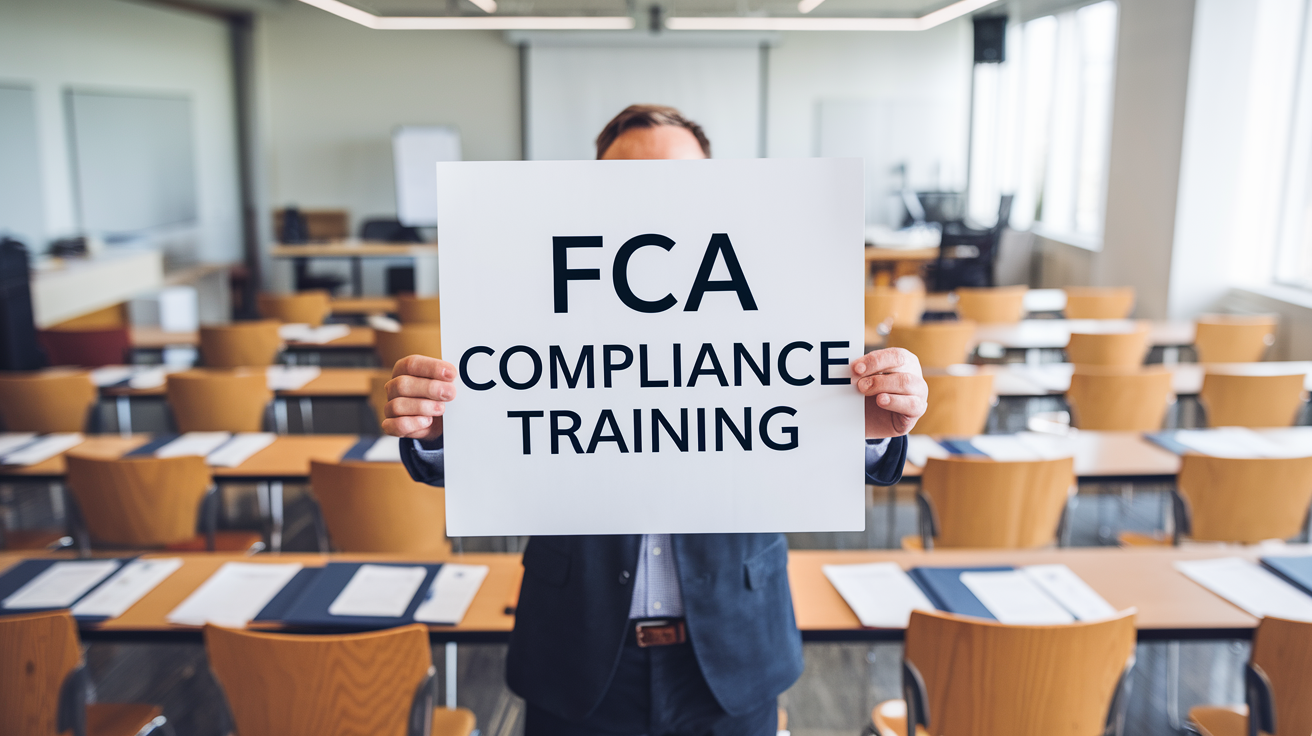
Importance of FCA Compliance Training
-
Introduction
In today’s fast-paced financial landscape, FCA compliance is not just a regulatory requirement; it is essential for the integrity and reputation of financial institutions. The FCA (Financial Conduct Authority) regulates financial firms to ensure they act in the best interests of consumers, markets, and the UK economy. Compliance training equips employees with the necessary knowledge to navigate these regulations effectively, ensuring organisations can mitigate risks and foster a culture of compliance.
-
What is FCA Compliance?
FCA compliance refers to adhering to the regulations set forth by the Financial Conduct Authority. These regulations cover various aspects, including fair treatment of customers, prevention of financial crime, and promotion of competition. Understanding these guidelines is crucial for maintaining trust and accountability in financial services, ensuring that firms operate both legally and ethically.
-
Why FCA Compliance Training is Crucial
- Risk Reduction: Effective compliance training significantly reduces the risk of financial crime, including fraud and money laundering. By making employees aware of red flags and ethical practices, organisations can prevent potentially devastating legal and financial consequences.
- Employee Knowledge: Training enhances employees’ understanding of regulatory expectations and empowers them to make informed decisions in their roles. This knowledge not only aids in individual performance but also promotes a collective responsibility towards compliance.
- Legal Obligations: Financial institutions must comply with a range of laws. Non-compliance can lead to hefty fines and reputational damage, making it vital for organisations to ensure their staff is knowledgeable about these laws and the consequences of violation.
-
Components of Effective FCA Compliance Training
- Curriculum Design: Training should be tailored to specific roles within the organisation. Real-life scenarios and case studies should be incorporated to make the training relatable and practical, enabling employees to understand how regulations apply in their day-to-day functions.
- Delivery Methods: A blend of in-person and online training sessions can cater to diverse learning preferences. Interactive workshops encourage engagement, making the training more effective as employees contribute their perspectives.
- Assessment and Feedback: Regular evaluations, such as quizzes and practical assessments, facilitate understanding of the material. Additionally, gathering feedback from employees helps refine future training and ensures it meets their needs.
-
Implementing FCA Compliance Training
- Needs Assessment: Conduct a thorough analysis of the existing knowledge and skills gaps within teams. This assessment should consider the varying responsibilities of employees to ensure the training is relevant and effective.
- Scheduling Training Sessions: It’s essential to schedule training at regular intervals, allowing for ease of access and integration into employees’ workflows. Flexibility in timing and format can encourage higher attendance rates.
- Continuous Improvement: Keeping training materials up-to-date with the latest regulations and feedback from participants is critical. Encouraging a culture of ongoing learning ensures employees remain informed about changes in compliance requirements.
-
Measuring the Effectiveness of FCA Compliance Training
- Key Performance Indicators (KPIs): Evaluate training effectiveness through metrics such as compliance rates, incident reports, and employee feedback scores. These indicators can show the tangible impact of training initiatives.
- Case Studies: Sharing success stories or case studies of improved compliance within the organisation can motivate staff and demonstrate the real-world benefits of the training.
- Adjustments Based on Feedback: Regularly review feedback from employees to identify training improvements, ensuring the content remains engaging and relevant to their roles.
-
Conclusion
FCA compliance training is more than a regulatory obligation; it is a fundamental component of responsible business practice. By investing in robust training programmes, organisations can safeguard their operations, protect consumers, and strengthen their reputations. As the regulatory landscape continues to evolve, embracing comprehensive compliance training will be essential for long-term success and stability in the financial sector.
To Contact Us
Tel; UK 0800 689 0190, International +44 207 097 1434
Email: info@complianceconsultant.org
Or Book A Discovery Call with us by clicking the picture below!
You may also find these posts of interest
FCA Risk Assessment and Management
Training Program Development
Evaluating Training Effectiveness
